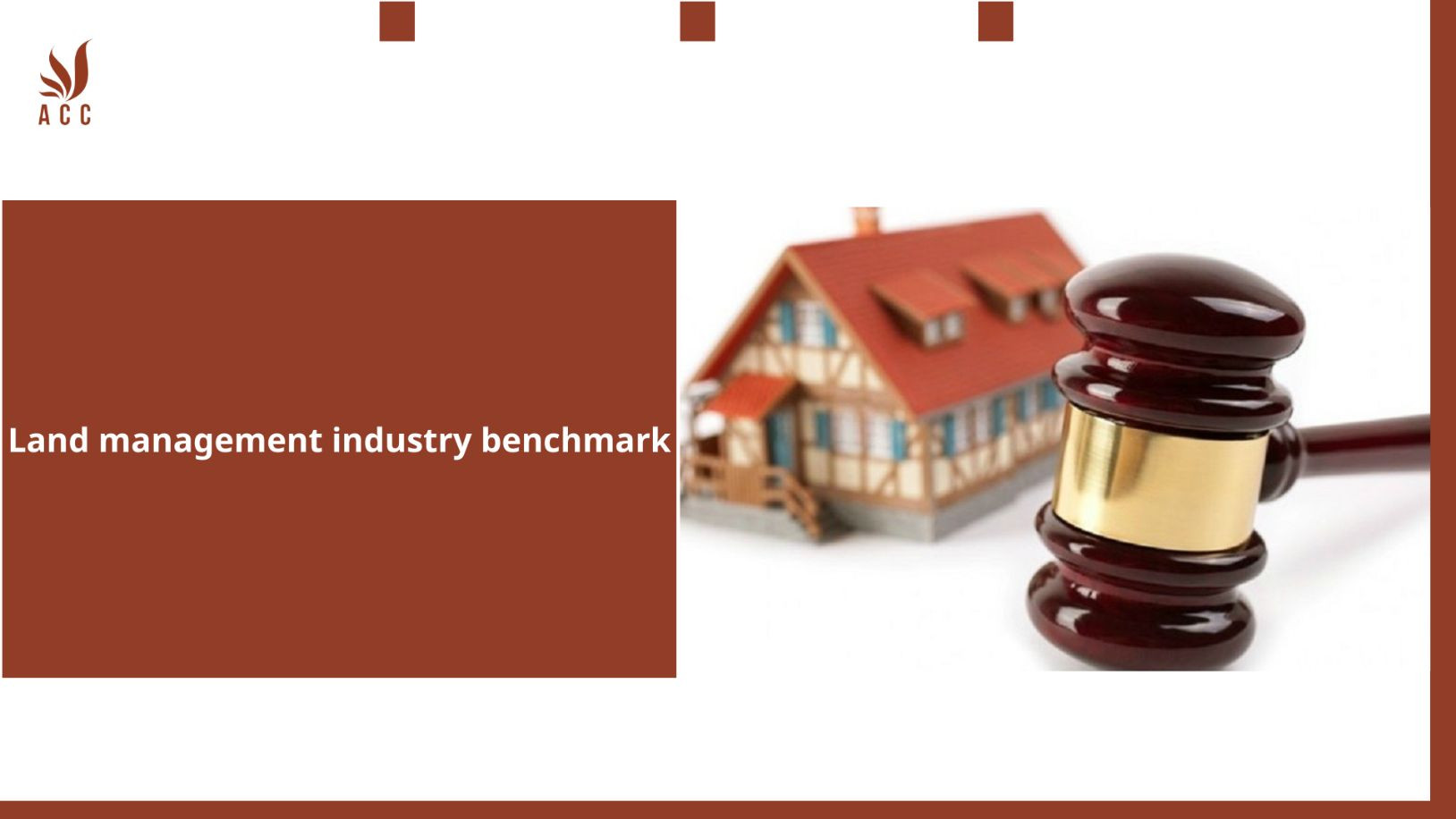The concept of a "land management industry benchmark" typically refers to a standard or point of reference used to evaluate the performance, practices, or efficiency of businesses, organizations, or individuals operating in the field of land management. Benchmarks are essential for assessing how well entities in the land management industry are performing and for identifying areas where improvements can be made. Here's how a benchmark might be applied in the land management industry:

1. Performance Metrics:
Benchmarks can encompass various performance metrics, such as land acquisition efficiency, land use planning effectiveness, land valuation accuracy, or sustainable land development practices.
2. Comparison:
A benchmark allows companies or organizations to compare their performance to that of their peers, competitors, or industry leaders. By doing so, they can identify areas where they excel and areas where they may be falling behind.
3. Best Practices:
Benchmarks often highlight best practices within the land management industry. Companies and professionals can use these best practices as a guide to improving their own operations.
4. Efficiency:
Efficiency benchmarks can help organizations gauge how well they're utilizing resources, time, and budgets in land management projects. For example, they may evaluate how quickly land transactions are completed or how cost-effective land development projects are.
5. Sustainability:
In an era of increasing focus on sustainability, benchmarks related to sustainable land management may assess factors like conservation, environmental impact, and adherence to sustainability standards.
6. Compliance:
Regulatory benchmarks help organizations ensure they are adhering to legal requirements and land-use regulations. Staying compliant with land laws is crucial in land management.
7. Customer Satisfaction:
Customer satisfaction benchmarks can gauge how well land management professionals or companies are meeting the needs of clients or landowners. High levels of customer satisfaction can be a valuable benchmark in service-oriented areas of land management.
8. When using ACC Law Firm's land-related services, entrepreneurs will receive
When using ACC Law Firm's land-related services, entrepreneurs will receive expert advice and assistance in navigating various legal aspects of land ownership and transactions. This includes guidance in property acquisitions, leases, zoning regulations, land use planning, and any other land-related legal matters. ACC Law Firm's team of experienced attorneys will provide personalized support to entrepreneurs, ensuring compliance with applicable laws and regulations, protecting property rights, and optimizing the value of their land investments.
9. Q&A
Question 1: What is benchmarking in the context of the land management industry?
Answer 1: Benchmarking in the land management industry involves the process of comparing the performance, practices, and standards of one organization, project, or land management process to those of other similar entities or industry standards. It is used to identify areas for improvement, best practices, and areas where an organization can excel.
Question 2: Why is benchmarking important in the land management industry?
Answer 2: Benchmarking is crucial in the land management industry for several reasons. It helps organizations and agencies identify inefficiencies, reduce costs, improve processes, and enhance the quality of land management services. By comparing their practices to industry leaders, they can set performance targets and achieve higher standards.
Question 3: What are common areas of benchmarking in the land management industry?
Answer 3: Common areas for benchmarking in the land management industry include land surveying methods, land use planning processes, land administration procedures, land law compliance, and environmental sustainability practices. Organizations may also benchmark performance metrics, customer service, and technology adoption.
Question 4: How can organizations in the land management industry initiate a benchmarking process?
Answer 4: Organizations in the land management industry can initiate a benchmarking process by following these steps:
- Identify the areas or processes to be benchmarked.
- Research and select benchmarking partners or sources, which can be industry peers or best-in-class organizations.
- Collect relevant data and metrics from the selected sources.
- Analyze the data and compare it to the organization's performance.
- Identify performance gaps and opportunities for improvement.
- Develop an action plan to implement changes based on benchmarking results.
- Continuously monitor progress and adjust strategies as needed.
Nội dung bài viết:






Bình luận